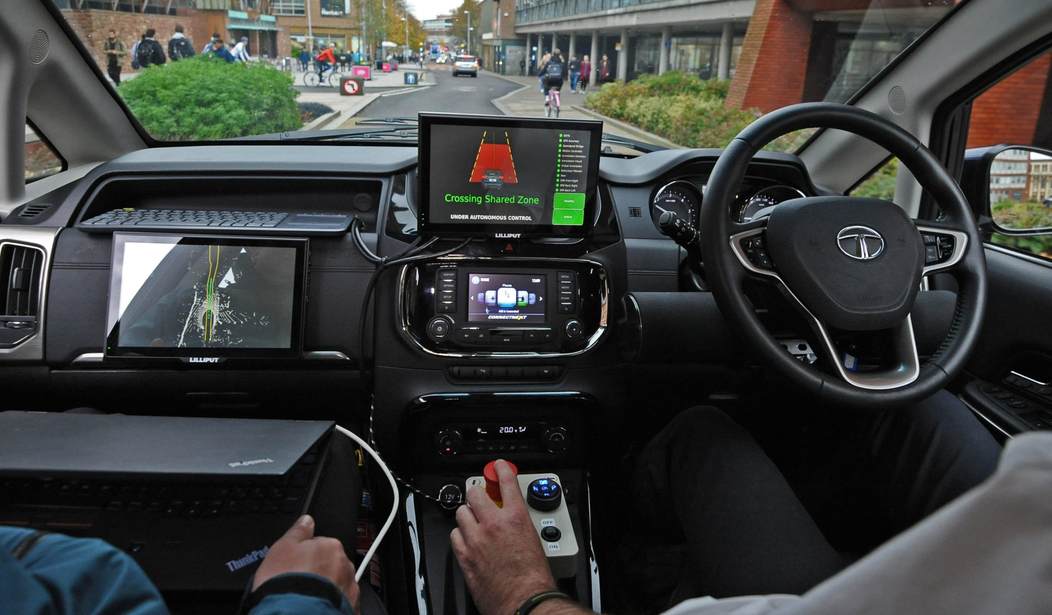Bob Lutz, a fixture in the Detroit auto industry for 47 years, told the Michigan Venture Capital Association early this month that “human-driven cars will be forced off the roads by safety regulators” in the near future because they will “mess up the autonomous environment.”
“I will absolutely guarantee that electronic technology in autonomous vehicles is going to reduce serious and fatal accidents in the United States by at least 90 percent,” said Lutz, who was most recently the vice chairman of General Motors until 2010. And he promised the accident rate would fall even further once human beings were outlawed from sitting behind steering wheels.
Autonomous autos are not a revolution that will affect only the United States. Lutz wrote in Automotive News that in the next 15 to 20 years, humans wouldn’t be allowed to touch a steering wheel anywhere in the world.
“The tipping point will come when 20 to 30 percent of vehicles are fully autonomous. Countries will look at the accident statistics and figure out that human drivers are causing 99.9 percent of the accidents,” Lutz wrote. “Everyone will have five years to get their cars off the road or sell it for scrap.”
Andrew Stuttaford, contributing editor of National Review, called the idea that government could or should legislate people off the roads “highway robbery.”
“If such (autonomous) cars do bring such practical benefits (and they could well), people will choose them for themselves, and only a stubborn minority — a minority too small to disrupt the smooth operation of a driverless traffic system — will stick with their retrograde jalopies,” Stuttaford wrote. “Even if we put the question of individual freedom to one side (and we should not), if driverless cars turn out to be as good as some predict they ought not to need compulsion to back them up.”
But only cars that drive themselves might soon be allowed on one stretch of interstate highway in Wisconsin. And New York City officials have been told by Gov. Andrew Cuomo (D) they need to get ready for an autonomous auto future whether they like it or not.
Wisconsin officials are considering changing one lane of I-94 to autonomous-only because that’s what Foxconn wants. The Chinese company has agreed to build a 20-million-square-foot factory to make half-a-million iPhones a day and would like one lane of I-94 set aside for self-driving trucks to transport supplies and products to and from the plant near Racine.
Tim Sheehy, president of the Metropolitan Milwaukee Association of Commerce, said Foxconn dropped that bombshell on regional officials when they were showing off plans for widening I-94 to eight lanes.
“They looked at us and said, ‘So where’s the autonomous lanes?’” Sheehy told a meeting of the Greater Milwaukee Committee. “We were all dumbstruck.”
But when the 500-pound elephant in the room tells you what it desires, you start getting it what it wants.
Michael Pyritz, spokesman for the Wisconsin Department of Transportation’s southeast region, told the Milwaukee Journal-Sentinel DOT officials are looking at writing an autonomous lane into their I-94 plans.
“It’s on the table,” Pyritz said.
New York Gov. Andrew Cuomo signed a deal with General Motors and Cruise Automation in October to being testing autonomous autos in New York City.
Cuomo believes driverless cars are the future, and he doesn’t want New York State to be left behind at the Shell station watching the world drive by.
“We are positioned on the forefront of this emerging industry that has the potential to be the next great technological advance that moves our economy and moves us forward,” Cuomo said.
Manhattan Borough President Gale A. Brewer said if driverless cars can make it in New York, well, they can make it anywhere.
“New York is the ultimate proving ground for autonomous vehicle technology. We have a streetscape that is unrivaled in its scale and complexity,” Brewer said, “and so it’s fitting that General Motors and Cruise Automation are finally bringing this technology here for testing and development.”
But New York Mayor Bill de Blasio’s spokesman said nobody on Cuomo’s team bothered to talk to city officials about deploying the newest technology the elites love to love.
“The city wasn’t given much notice of this idea and we certainly weren’t consulted,” Eric Phillips told the New York Times. “We have very real safety concerns.”
Mayor de Blasio told reporters he didn’t like the idea of self-driving cars on New York City streets.
“I think it creates danger,” de Blasio said.
Richard Azzopardi, a spokesman for Gov. Cuomo, accused Phillips and de Blasio of “hyperventilating.” But perhaps de Blasio is correct to be concerned.
Brad Stertz, Audi’s director of government affairs, told CBS News self-driving technology is not ready for the streets of New York.
For instance, an autonomous auto, Stertz said, would have trouble dealing with a policeman flagging traffic.
“We’re not there yet because the brain is not advanced to be able to understand what that person is doing,” said Stertz. He doesn’t see the possibility of self-driving cars working well in New York until 2035.
Sam Schwartz, a former New York City traffic commissioner, said he’s afraid all the cars, trucks, and people in Manhattan would overwhelm autonomous auto’s sensors.
“If it weren’t for humans,” Schwartz said, “autonomous vehicles would work perfectly.”









Join the conversation as a VIP Member